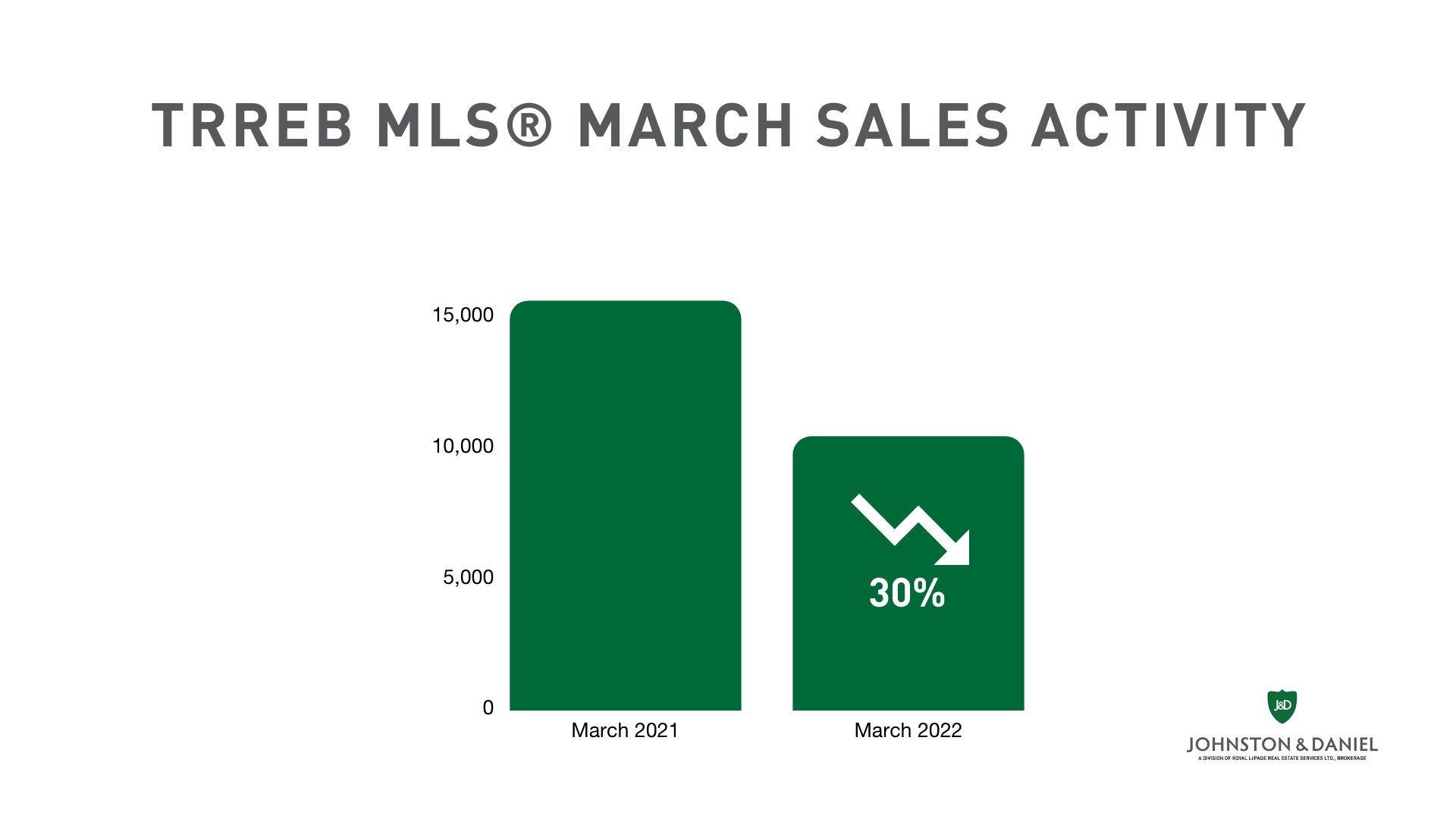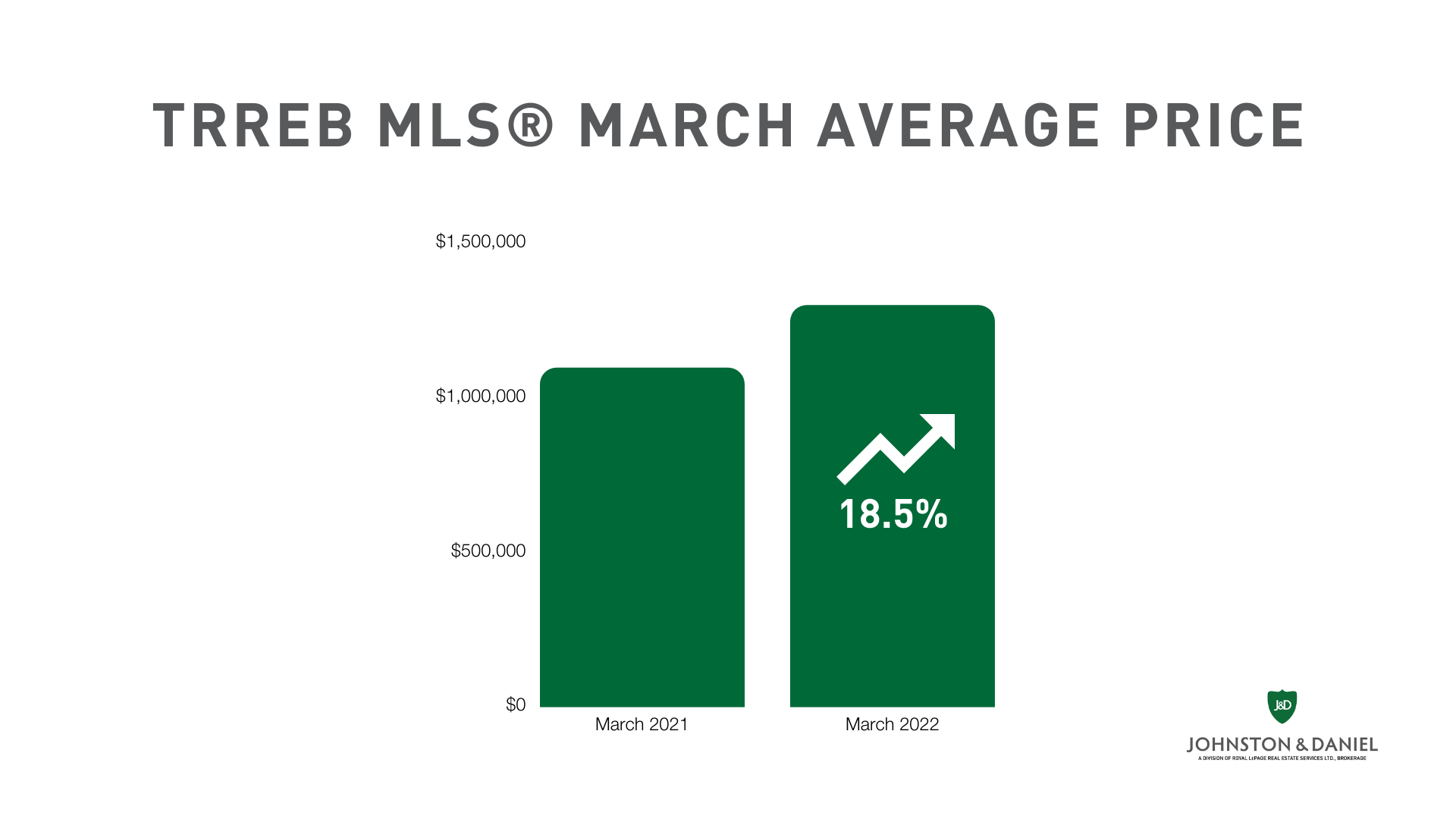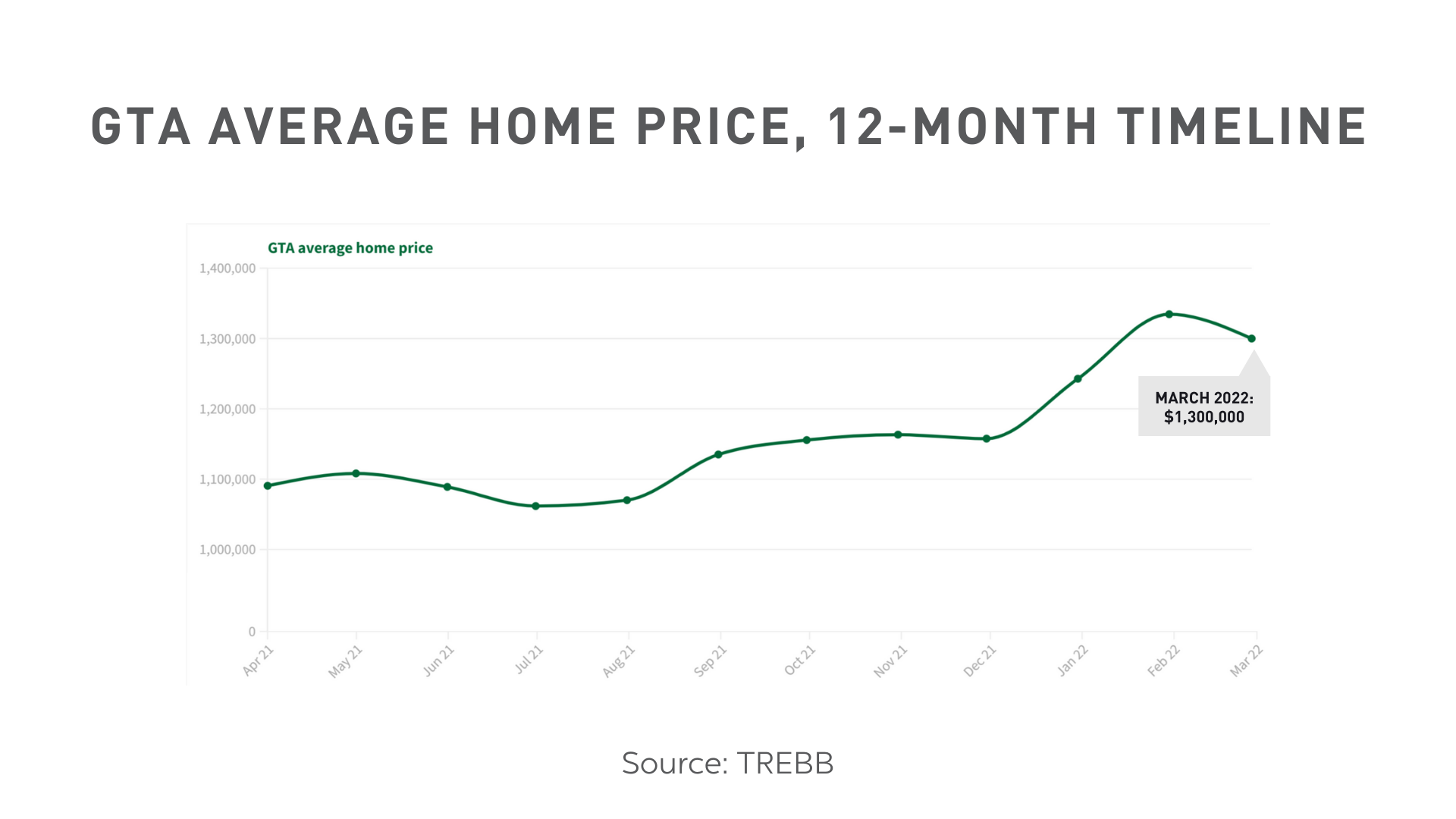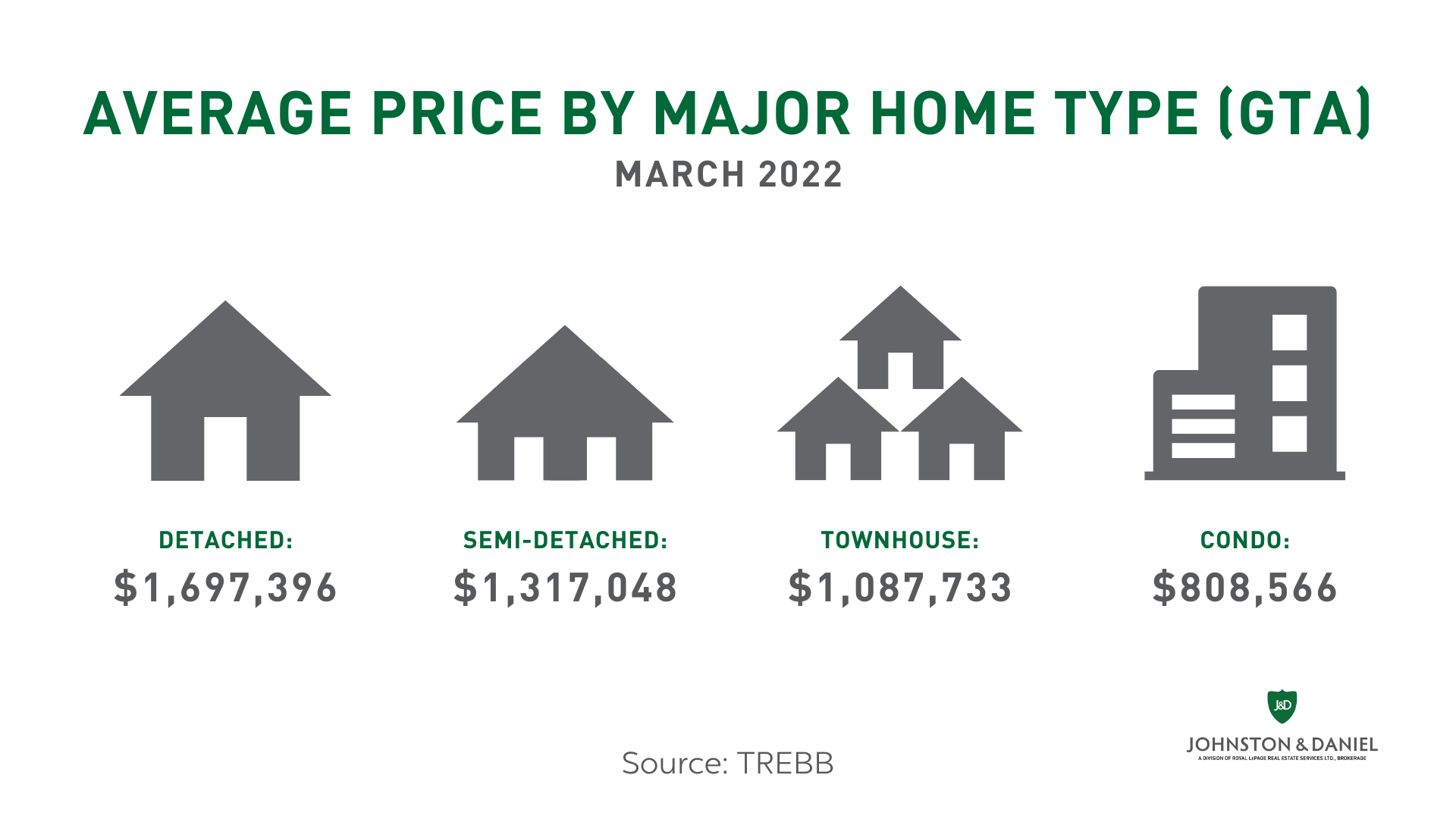Hot sales month for the GTA housing market, but signs of cooldown ahead
GTA sales in March fell 30% compared to March 2021, this is in spite of the fact that new listings were only 12% lower. A total of 10,955 sales were reported in March, compared to 15,628 the previous year.

The average selling price slightly dipped from February and increased from the previous year to $1,299,894. This is an 18.5% year-over-year increase.


Homes did not stay listed for long in March. The average number of listing days on market was eight, a 20% decrease compared to the 10-day average in March 2021. Total active listings were down only 4% year-over-year. New listings were down by 12% year-over-year, from 22,747 in March 2021 to 20,038 in March 2022.
Average price by home type:
- The benchmark price for detached homes increased by 21% year-over-year to $1.7M
- The benchmark price for semi-detached homes increased by 26% to $1.3M
- The benchmark price for townhouse homes increased by 25% to $1.09M, and
- The benchmark price for condos increased by 20% year-over-year to $808k.

What’s ahead for the spring market?
There are a number of factors that may contribute to the GTA spring housing market.
- In March, we saw GTA inventory levels triple from the low inventory reported in December 2021. However, this may be a return to normal seasonality, as it’s typical to see a supply increase around this time of year.
- The Bank of Canada will make another interest rate announcement on April 13 and we could see another rate hike following the one in March.
- Inflation continues to rise across the country and the world. We saw gas prices accelerate following Russia’s invasion of Ukraine. For some homebuyers, this might impact their decision to make any big purchases in the immediate future. It could also reverse the recent trend of people wanting to move further away from the city.
- The Ford Government recently announced an increase on foreign home buyers tax from 15% to 20% in the Greater Golden Horseshoe region in southern Ontario
- As COVID-19 restrictions continue to ease, many people will begin to resume activities such as commuting to work, planning vacations, hosting events, and participating in more social activities. It will also mean the return of more steady immigration to Canada.
If GTA housing supply continues to increase, interest rates continue to rise, and environmental and geopolitical factors continue to influence home buying decisions, we could see a shift to a more balanced market. However, there are other factors to offset this including increased demand for condos and homes in the GTA. These and other trends will make the next few months important to watch.
_
All stats are provided by Toronto Regional Real Estate Board.


